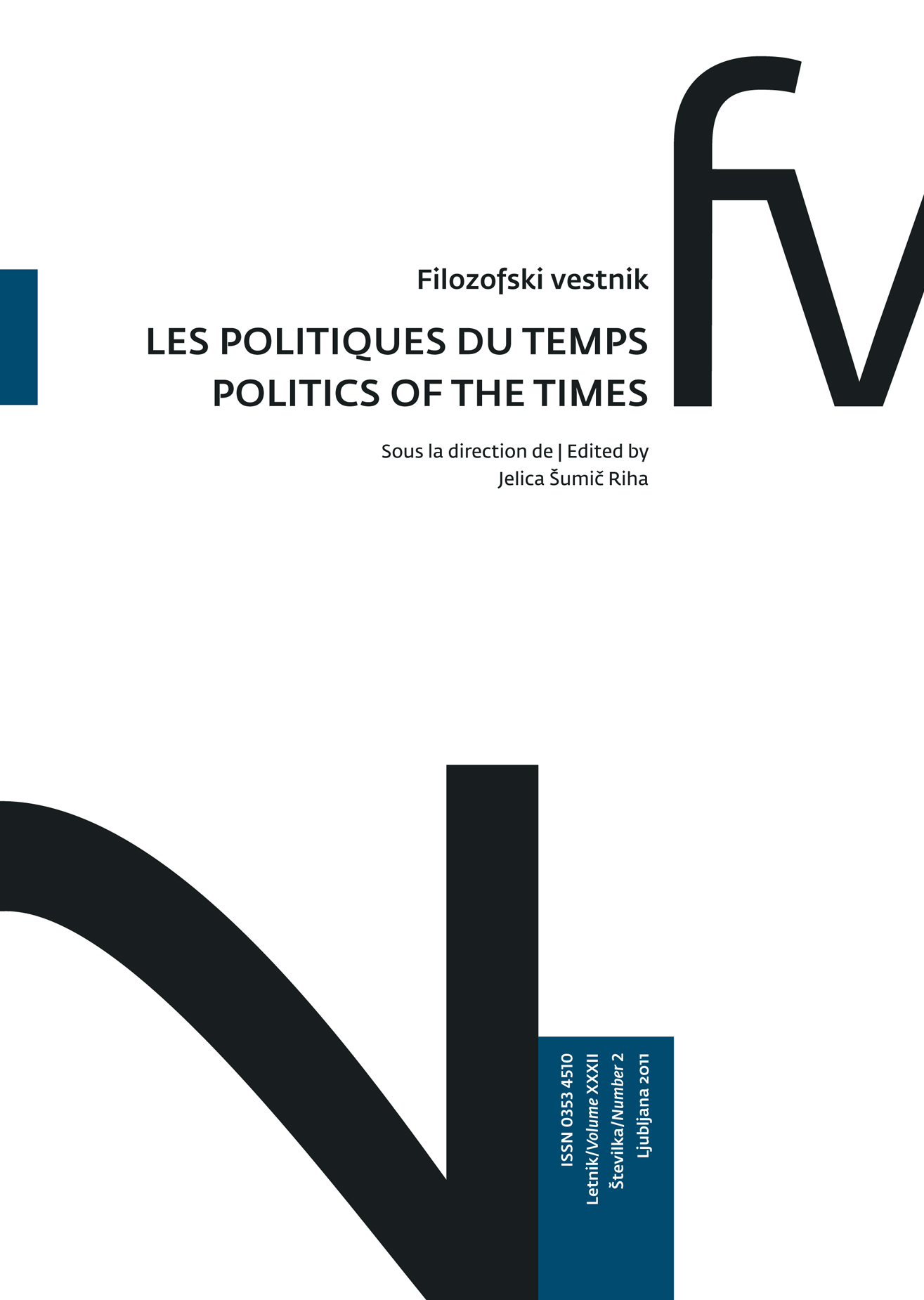La forme d’un sujet à venir
Povzetek
Is it possible to have a materialist definition of the subject which nonetheless separates the latter from any given type of object? In this article I start from the criticism – which both Alain Badiou and Gilles Deleuze provide – of the identification of the subject with a given type of substance, provided with specific modes of correlation with other objects. Namely, I try to show how for both authors the identification of the subject with a res – be it the res cogitans, the human animal, or even the conditions of the possibility of experience of the latter –, pins down the subject to a specific place and function, and in this way ultimately provides a representation of the subject as a specimen of a given category of objects. More precisely, the identification of the subject with a specific class of objects is exposed by Deleuze as the very structure that tends to reduce the transformative capacity of the latter into the limits of a finite form; in a similar way, Badiou exposes this identification as one of the fundamental features of reactionary ideology. The article also shows how it is in this sense that one needs to read Deleuze’s refusal of the subsumption of the subjective process under the sole name ‘subject’, especially when the latter is identified with the cognitive structures of the human animal. Aiming nonetheless at maintaining a materialist definition of the subject, both authors stress the idea that the subject is an always singular process in which a new figure is created via a process of disidentification from a specific class of objects. This article then follows in particular three formal characteristics that Deleuze and Badiou find for the subjective process: first, that a subject appears as (or under condition of) a fracture or an inconsistency in the mode of organization of a class of objects; second, that a subject tends to turn such an evanescent fracture into a new body; and finally that a subject exposes such moments of disidentification and of production of novelty as being infinitely repeatable and universally valid. Starting from this, the article concludes by identifying a set of internal limits and contradictions in Badiou’s and Deleuze’s positions (namely a re-naturalization and re-anthropologization of the category of the subject) and by highlighting a series of developments in contemporary philosophy that allow the further elaboration of further the idea of the subject as an always singular (and yet universally repetable) practice of disidentification from a specific class of objects.
Prenosi
Prenosi
Objavljeno
Kako citirati
Številka
Rubrike
Licenca
Avtorji jamčijo, da je delo njihova avtorska stvaritev, da v njem niso kršene avtorske pravice tretjih oseb ali kake druge pravice. V primeru zahtevkov tretjih oseb se avtorji zavezujejo, da bodo varovali interese založnika ter da bodo povrnili morebitno škodo.
Podrobneje v rubriki: Prispevki





